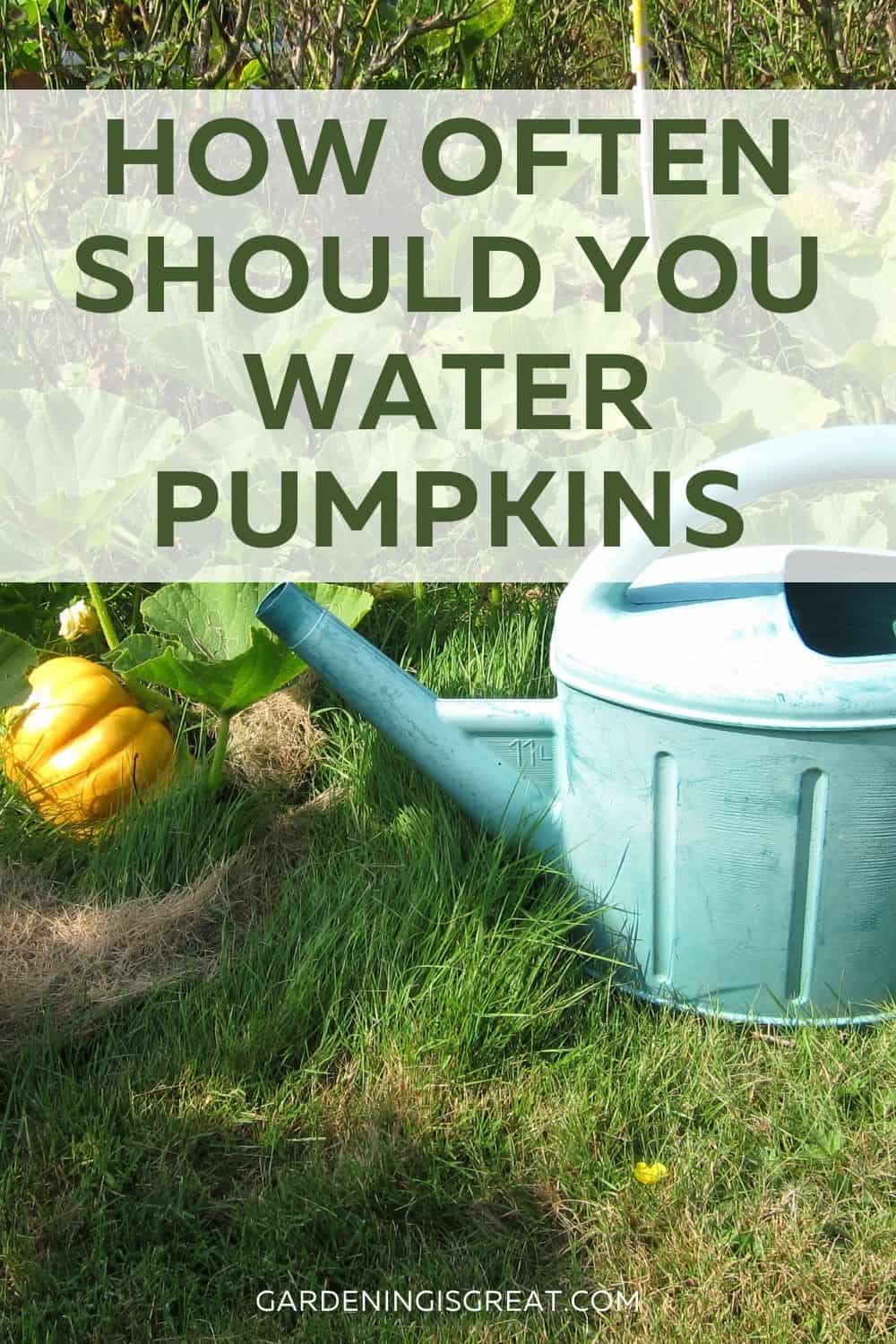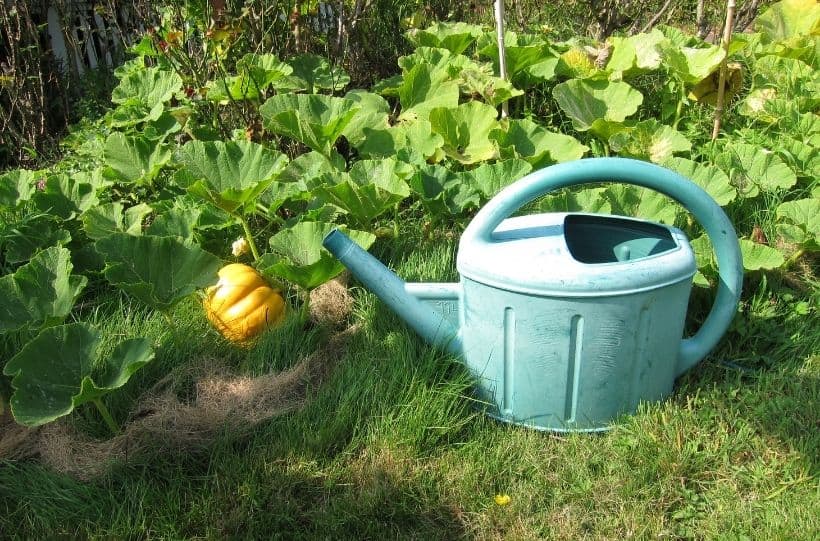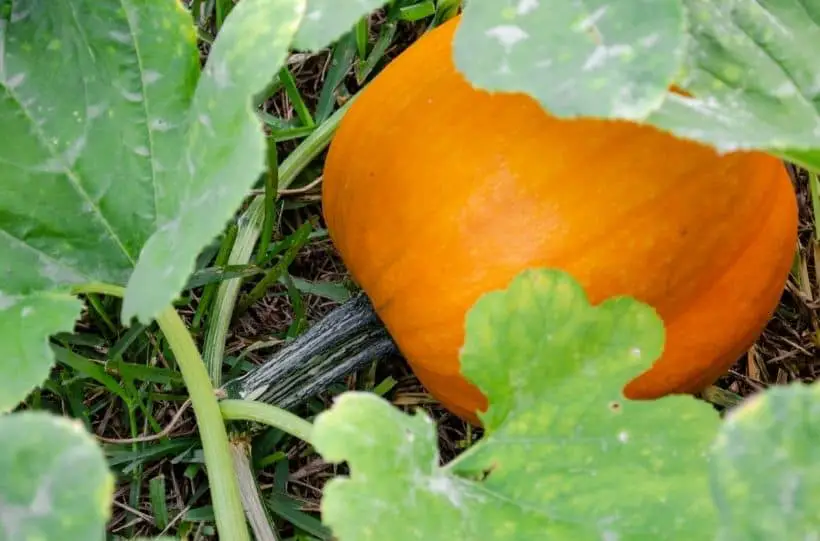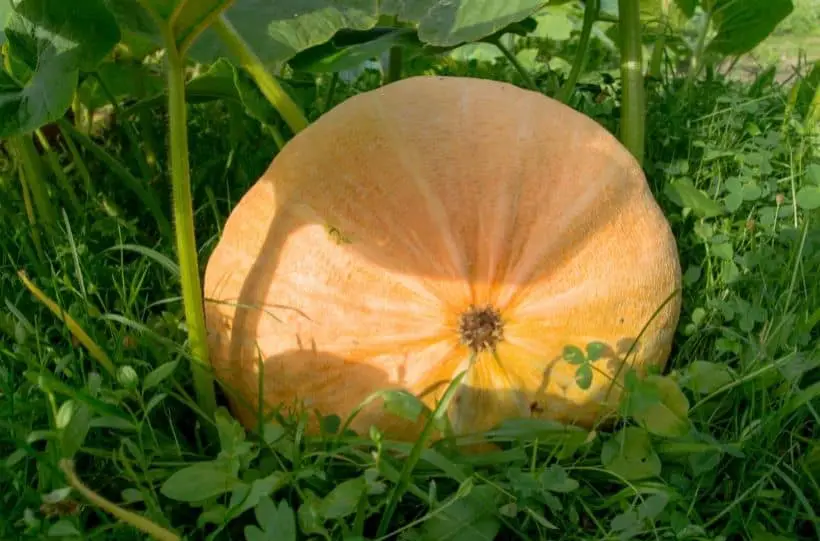How Often Should You Water Pumpkins? And How Much Water Do They Need?
You want your pumpkin plant to grow up big and strong, right? The best way is by giving it lots of love with regular watering.
Follow these simple steps for successful pumpkin growing this season!

How Much Water Do Pumpkins Need?
Because they are 80-90% water, they need a lot of water. One inch per week is ideal. If you have hot weather and drought conditions then expect to provide more water.
Water in the evening and water only the base of the plant to keep the leaves dry, water on the leaves will encourage disease. As pumpkins age, the water uptake is decreased and the plant may need more water. Most pumpkins will stop producing fruit if under-watered.
If possible use drip or soaker hoses to avoid wetting leaves. This greatly reduces the spread of diseases such as powdery mildew, scab, and downy mildew which thrive in moist environments.
Pumpkins like well-drained soil with lots of organic matter like manure or compost added as fertilizer. This helps improve drainage and structure while providing nutrients for growth.
Pumpkins like their soil evenly moist so don’t give them too much or too little at one time. Overwatering will cause root rot and under-watering causes “pumpkin wilt”.
Should You Water Pumpkins Every Day?
While you can water pumpkins every day, it is best if they’re watered less frequently with deeper waterings.
Not only does this help save time, but your plants will be more healthy. Pumpkin plants take around one inch of water per week to grow and produce fruit.

The problem with watering every day is that it doesn’t provide deep root water. Even on plants without deep roots, it’s important to let the water soak into the soil.
Roots will usually grow less deep if they’re getting shallow watering all of the time.
When Should I Stop Watering My Pumpkins?
As the temperature cools and days shorten, days will become shorter. At this point, you can stop watering the pumpkins.
This is around September 1st for most locations in the Northern Hemisphere. If your pumpkins are still producing a lot of fruit, then keep giving them water until they are no longer developing new fruit.
If you live in an area that does not have a distinct fall or winter season (like Southern Florida) it’s best to stop watering altogether after October 1st.
Can Pumpkin Plants Be Overwatered?
The biggest mistake that many gardeners make when growing pumpkins is overwatering them, which leads to disease issues down the road. One of the easiest ways to prevent this is to check the soil moisture before watering. If the soil feels moist 2 inches deep, then it’s okay not to water that day!

If your plants are growing well and producing lots of fruit, they are getting plenty of water and don’t need additional irrigation.
Overwatering pumpkin starts affects the leaves first, causing them to yellow and then fall off. If you’ve overwatered your plants, this can happen within a few days to a week.
Just like underwatering pumpkins causes leaf loss, over-watering is also going to cause leaf loss except it’s going to happen more slowly. Overwatering will eventually lead to root rot and the death of the entire plant depending on how much water is given at one time or if it’s consistently overwatered.
Unfortunately, there isn’t much that can be done once over-watering takes place as it can take several months for a new plant (or patch) to grow in its place. The best way to prevent this from happening is to water in the early morning or late evening when leaves are less likely to be wet.
This is also true for watering outdoors during rainy weather, too! Overwatering isn’t only a problem for young pumpkin plants—if you over-water your adult plants it can lead to disease issues and their eventual demise.

It’s important to know how much water pumpkins need and when they should be watered. Pumpkin plants are susceptible to several different diseases, but the only way to prevent them is by understanding how much water they need.
When in doubt about overwatering, if the soil feels moist 2 inches deep, then skip the watering that day!
